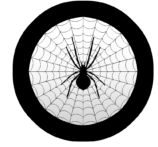The Basaa, Bassa, Bassar or Bassao are black and African people who originated in ancient Egypt and spread throughout Africa and the world. They were the kings of ancient Egypt, whom the Greeks called Pharaohs. The Basaa called their land, Saa, Kemit, and the Greeks renamed their land Egyptos from which derived the word ”Egypt” which means ”The great soul”. ‘The great soul’ was the name given by the Greeks to one of the Basaa Egyptian kings who allowed the Arab minority to settle in present-day Egypt.
However, many Basaa people throughout the world have renamed themselves over the years and throughout history, taking on other names making it difficult at first glance to recognize their Basaa and African origins. This is the case, for instance, of the peoples of the Philippines in South East Asia and who are the focus of this article.

As a reminder, Africa is called the Cradle of Humankind because human life originated there. The name applies more specifically to a region in South Africa where fossil remains of human ancestors were found. The oldest evidence dates back at least 3 million years. The United Nations Educational Scientific and Cultural Organization (UNESCO) declared the region World Heritage site in 1999.
In other words, we all come from Africa, we all have black and African ancestors regardless of our nationality and skin color. That is why, for instance, there is a province in the Philippines called Negros Oriental, the word negro means black. Moreover, Mamanwa who are black people of the Caraga region in the Philippines are the oldest existing group of people in the country and are believed to be direct descendants of the Mambuti tribe in Africa.

Anthropology is the scientific study of humanity concerned with human behavior, human biology, culture, societies and linguistics in both present and past. in other words, anthropology allows us to connect humans to their distant past by studying their culture which includes but not limited to: religion, language, art, cuisine, clothing, behavior, social habit, marriage.
To break it down, for instance, by studying Filipino language we will be able to connect Filippino to their distant past. We can also do the same operation by either studying Filipino social habit, religion etc.
Let us try to connect Filipino to their Basaa origin by way of Linguistics.
The Filipino word for house is Bahay. The Basaa of Cameroon use the word Bai to designate house. Even though the spelling is not the same, however ‘Bahay’ and ‘Bai’ have the same phonetics, they are pronounced the same.
The Filipino word for father is ‘Tatay’. The Basaa of Cameroon use the word ‘Tata’ for father.
Let’s take a more complex example.
The Filipino word for sun is Araw. In the pronunciation of Araw there is RA, the divinity of the sun in ancient Egypt, the origin of the Basaa people. This shows that the Philippines also has Basaa origins. To designate ancestors, the Basaa of Cameroon use the word ‘Tara’, ‘Ta’ being the father and ‘Ra’ the divinity of the sun.
According to the Basaa people, not everyone becomes an ancestor. The Basaa make a clear distinction between forefather and ancestors. Ancestors, are those who, after death, unite with Ta-Ra. Ra is the divinity of the sun in ancient Egypt, who is also referred to as Father Ra or Ta-Ra.
Let us try to connect Filipino to their Basaa origin by way of Social habit.
Mano (Tagalog: pagmamano) is an “honouring-gesture” used in Filipino culture performed as a sign of respect to elders and as a way of requesting a blessing from the elder. Similar to hand-kissing, the person giving the greeting bows towards the hand of the elder and presses their forehead on the elder’s hand.
Did you know that the Mano, a Filipino way of greeting and asking for the blessing of the elderly, has its origins in Africa?

In Mano, the recipient receives the blessing on the forehead. In Africa, too, blessing is given on the forehead. Why the forehead? The understanding of the forehead in the Mano requires a deep understanding of Basaa spirituality. For length purpose, I will be writing a separate article to answer this question.
In the Philippines, it’s not recommended to sweep at night, as this practice brings bad luck. The same goes for the Basaa in Cameroon.
If we had to remember just one thing, it would be this: When people migrate, they also migrate with their culture, although this may undergo alterations over time. These alterations are due to the fact that culture is the set of solutions a people uses to face the challenges of a given moment in its history. In other words, culture is dynamics and not static. Culture is like the turtle’s shell, and humans are like the turtle itself. The turtle always walks around with its shell, and humans with their culture.
Massocki Ma Massocki

